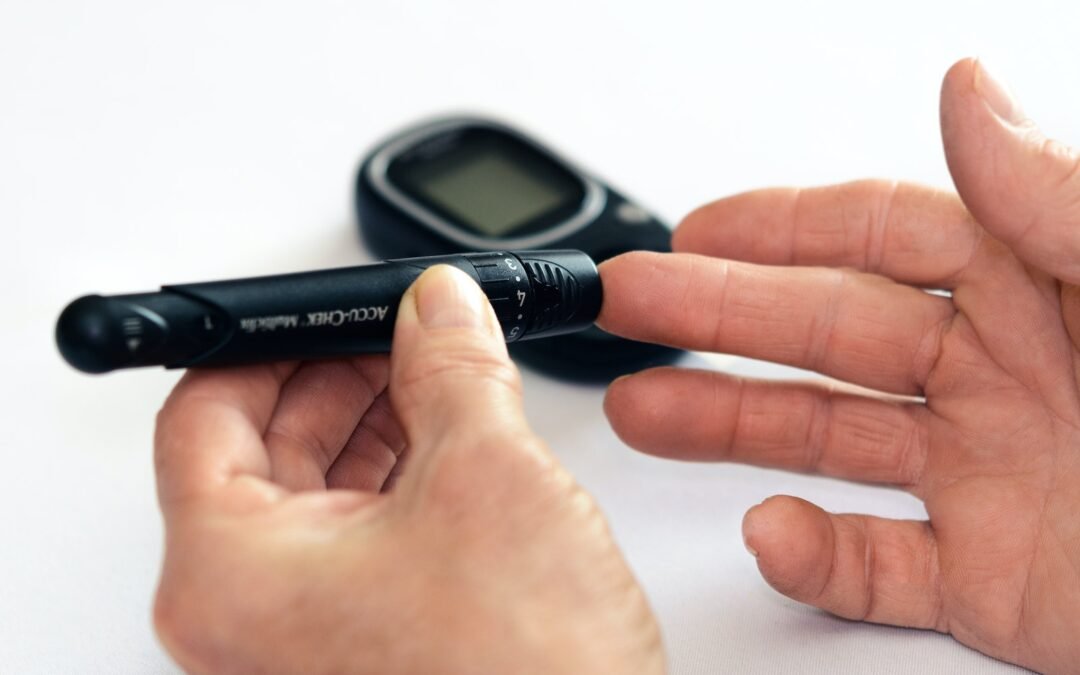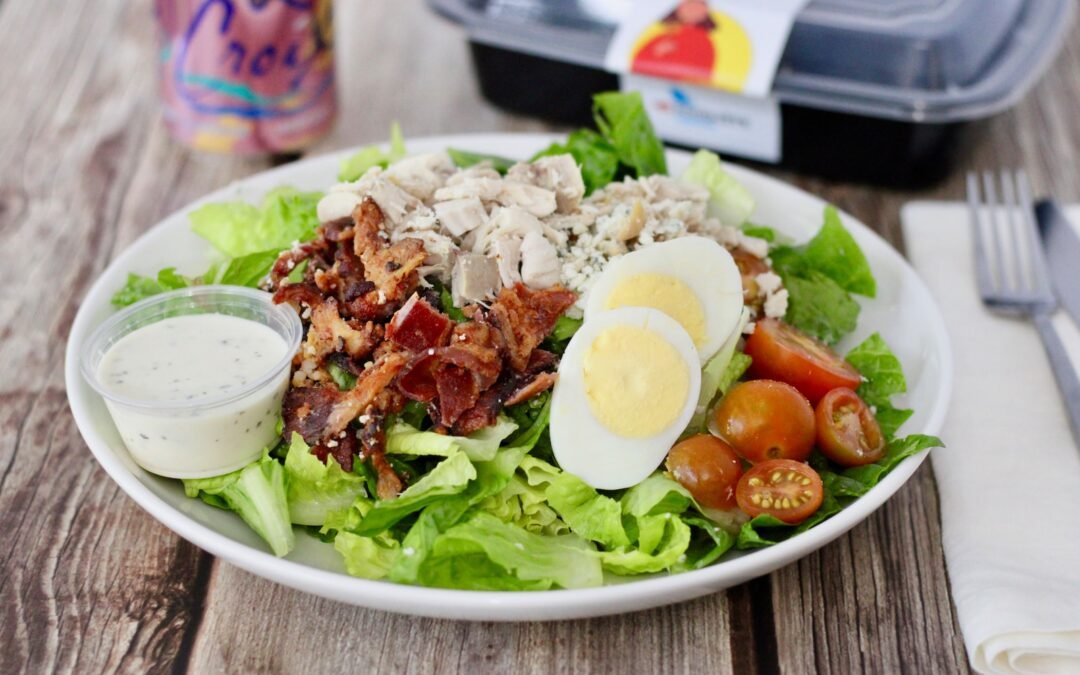The Mediterranean diet is a heart-healthy eating plan that emphasizes eating plant-based foods. This diet is based on the traditional cuisine of countries bordering the Mediterranean Sea, such as Spain, Italy, and Greece. The Mediterranean diet has been shown to reduce the risk of heart disease, stroke, and certain types of cancer.
Making small changes to your diet can have a big impact on your health. By following the Mediterranean diet, you can improve your overall health and reduce your risk of chronic diseases. Start by incorporating more unprocessed foods into your meals and choosing healthy fats over unhealthy ones. With time, these small changes will become habits that will benefit your health in the long run.
Understanding the Mediterranean Diet
Studies have shown that the Mediterranean diet can have numerous health benefits, including reducing the risk of heart disease, stroke, and type 2 diabetes. It may also help with weight loss and improve brain function.
Here are some key components of the Mediterranean diet:
- Plant-based foods: The Mediterranean diet emphasizes legumes, fruits, vegetables, nuts, whole grains, and seeds. These foods are rich in fiber, vitamins, and minerals.
- Fish and seafood: These are important sources of protein in the Mediterranean diet. They are also rich in omega-3 fatty acids, which are beneficial for heart health.
- Healthy fats: Olive oil is a key component of the Mediterranean diet. It is rich in monounsaturated fats, which can help lower cholesterol levels. Other sources of healthy fats include nuts, seeds, and avocados.
- Herbs and spices: These are used to flavor foods in the Mediterranean diet, instead of salt and added sugars.
- Red meat and processed foods: These are limited in the Mediterranean diet. Instead, lean sources of protein, such as chicken and turkey, are preferred.
Overall, the Mediterranean diet is a healthy and sustainable way of eating that can provide numerous health benefits. By incorporating more plant-based foods, healthy fats, and lean sources of protein into your diet, you can start reaping the benefits of this delicious and nutritious way of eating.
Benefits of the Mediterranean Diet
Here are some of the benefits of following the Mediterranean diet:
- Reduced risk of heart disease: Studies have shown that people who follow a Mediterranean diet have a lower risk of heart disease and stroke. This is likely due to the high intake of healthy fats, such as olive oil, and the abundance of fruits and vegetables in the diet.
- Weight loss: The Mediterranean diet is not a strict weight loss plan, but it has been shown to help people lose weight and maintain a healthy weight over time. This is likely due to the focus on unprocessed and whole foods and the reduced intake of processed and junk foods.
- Improved brain health: Some research has suggested that the Mediterranean diet may help improve cognitive function and reduce the risk of Alzheimer’s disease and other forms of dementia. This is likely due to the high intake of antioxidants and anti-inflammatory compounds in the diet.
- Reduced inflammation:Foods abundant in anti-inflammatory properties, like vegetables, fruits, fatty fish, and nuts, are part of the Mediterranean diet. This can help reduce inflammation in the body, which is linked to a variety of health problems, including heart disease, cancer, and autoimmune disorders.
- Improved gut health: The Mediterranean diet is rich in fiber, which is important for maintaining a healthy gut microbiome. This can help reduce the risk of digestive issues, such as constipation, bloating, and diarrhea.
Overall, the Mediterranean diet is a healthy and sustainable way of eating that can provide a wide range of health benefits. By focusing on whole, unprocessed foods and healthy fats, while limiting processed and junk foods, people can improve their overall health and reduce their risk of chronic disease.
Getting Started
Starting the Mediterranean diet can be a daunting task, especially if you are not familiar with the foods and cooking methods that are typically used in this cuisine. However, with a little bit of planning and preparation, you can easily incorporate this healthy and delicious way of eating into your life.
Grocery Shopping Tips
When shopping for Mediterranean diet ingredients, it is important to focus on fresh, whole foods. Here are a few tips to help you navigate the grocery store:
- Shop the perimeter: The perimeter of the store is where you will find fresh produce, meats, and dairy products. These are the staples of the Mediterranean diet, so focus on filling your cart with these items.
- Look for seasonal produce: Eating seasonally is a great way to ensure that you are getting the freshest and most flavorful fruits and vegetables. Plus, it can be more affordable than buying out-of-season produce that has been shipped from far away.
- Read labels: When buying packaged foods, be sure to read the labels and avoid products that are high in sugar, sodium, or unhealthy fats.
Meal Planning
Meal planning is key to success on the Mediterranean diet. Here are a few tips to help you get started:
- Plan your meals around vegetables: Vegetables should be the star of every meal on the Mediterranean diet. Start by planning your meals around a variety of colorful, seasonal vegetables.
- Incorporate healthy fats: The Mediterranean diet is rich in healthy fats, such as olive oil, nuts, and seeds. Be sure to incorporate these into your meals for added flavor and nutrition.
- Experiment with new recipes: Trying new recipes can help keep you motivated and interested in the Mediterranean diet. Look for recipes that feature fresh, whole ingredients and experiment with different flavor combinations.
By following these tips, you can easily get started on the Mediterranean diet and enjoy the many health benefits that this way of eating has to offer.
Mediterranean Diet Recipes
Breakfast
Starting the day with a Mediterranean-style breakfast is a great way to fuel your body with nutritious foods. Here are some ideas to get you started:
- A bowl of Greek yogurt topped with fresh berries and a drizzle of honey.
- Avocado on whole grain toast and a sprinkle of feta cheese
- Scrambled eggs with spinach, tomatoes, and olives
- Oatmeal with chopped almonds, dried apricots, and cinnamon
Lunch
For lunch, the Mediterranean diet emphasizes fresh, colorful vegetables and lean protein sources. Here are some tasty lunch ideas:
- Grilled chicken or fish with a side salad of mixed greens, cherry tomatoes, and cucumbers
- A whole grain pita stuffed with hummus, roasted veggies, and grilled chicken
- A quinoa salad with chickpeas, cherry tomatoes, red onion, and feta cheese
- Lentil soup with a side of whole grain bread and a mixed veggie salad
Dinner
Dinner is often the main meal of the day in Mediterranean cultures. Try these delicious dinner ideas to get a taste of the Mediterranean diet:
- Grilled salmon with a side of roasted sweet potatoes and sautéed kale
- Whole grain pasta with a homemade tomato sauce, topped with grilled chicken and a sprinkle of parmesan cheese
- A veggie-packed stir-fry with tofu, brown rice, and a soy-ginger sauce
- A roasted vegetable medley with a side of grilled shrimp and a mixed green salad
Remember, the Mediterranean diet is all about balance and variety. Don’t be afraid to experiment with new ingredients and flavors to find what works best for you.
Maintaining the Mediterranean Lifestyle
Once you have started the Mediterranean diet, it’s important to maintain the lifestyle to reap its benefits. Here are some tips to help you stay on track:
1. Incorporate Variety
The Mediterranean diet is all about incorporating a variety of foods that are rich in nutrients. This means that you should not stick to the same foods every day. Try to incorporate different fruits, vegetables, whole grains, legumes, nuts, and seeds into your meals. This will not only provide you with a range of nutrients but also keep your meals interesting and flavorful.
2. Prioritize Healthy Fats
The Mediterranean diet focuses on the consumption of healthier fats such as nuts, olive oil, and fish. These fats have been shown to reduce the risk of heart disease and improve brain function. Make sure to include these healthy fats in your meals and avoid trans fats and saturated fats found in processed foods.
3. Limit Red Meat and Processed Foods
Although the Mediterranean diet does not eliminate red meat and processed foods altogether, it does limit their consumption. These foods are high in saturated fats, sodium, and preservatives. Try to limit your intake of red meat and processed foods and replace them with lean proteins such as fish, poultry, and legumes.
4. Stay Hydrated
Drinking enough water is essential for maintaining a healthy lifestyle. The Mediterranean diet recommends drinking water as the primary beverage. Avoid sugary drinks such as soda and fruit juices, which are high in calories and sugar.
5. Practice Mindful Eating
The Mediterranean diet stresses the value of sharing meals with loved ones. Practice mindful eating by savoring your meals and focusing on the flavors and textures of the food. This will not only enhance your enjoyment of the food but also prevent overeating.
By incorporating these tips into your lifestyle, you can maintain the Mediterranean diet and enjoy its numerous health benefits.
Overcoming Challenges
Starting a new diet can be challenging, and the Mediterranean diet is no exception. However, with a little bit of planning and preparation, anyone can overcome these challenges and make the switch to a healthier lifestyle.
One of the biggest challenges people face when starting the Mediterranean diet is giving up their favorite foods. However, it’s important to remember that the Mediterranean diet is not about deprivation. Instead, it’s about making healthier choices and enjoying a variety of delicious foods. To make the transition easier, start by incorporating new foods into your diet gradually. For example, try adding a new vegetable to your meals each week or swapping out white bread for whole-grain bread.
Another challenge people face is finding the time to prepare healthy meals. However, with a little bit of planning, anyone can make time for healthy eating. One way to save time is to meal prep on the weekends. This can involve cooking a large batch of quinoa or roasting a variety of vegetables to use throughout the week. Another time-saving tip is to use a slow cooker or instant pot to prepare meals while you’re at work or running errands.
Sticking to a budget can also be a challenge when starting the Mediterranean diet, as some of the foods can be more expensive than processed or fast foods. However, there are ways to make the diet more affordable. For example, buy in-season produce, which is often cheaper than out-of-season produce. You can also buy frozen fruits and vegetables, which are often less expensive and just as nutritious as fresh produce.
Finally, it can be challenging to stick to the Mediterranean diet when eating out or traveling. However, with a little bit of planning, anyone can make healthier choices while on the go. Look for restaurants that offer Mediterranean-inspired dishes, such as grilled fish or roasted vegetables. When traveling, pack healthy snacks such as nuts, seeds, or fruit to avoid the temptation of fast food or junk food.
By overcoming these challenges, anyone can start and stick to the Mediterranean diet. Remember, it’s not about perfection, but about making healthier choices and enjoying a variety of delicious foods.
Conclusion
Starting the Mediterranean diet can be a great way to improve one’s health and overall well-being. With its emphasis on fresh fruits and vegetables, whole grains, lean proteins, and healthy fats, this eating plan can help reduce the risk of chronic diseases such as heart disease, stroke, and diabetes.
By following the tips outlined in this article, one can start the Mediterranean diet with ease. It’s important to remember that this is not a fad diet or a quick fix, but rather a lifestyle change that can lead to long-term health benefits.
When starting the Mediterranean diet, it’s important to focus on the foods you can eat rather than the ones you can’t. Incorporating a variety of colorful fruits and vegetables, whole grains, and healthy fats into your meals can help keep you satisfied and energized throughout the day.
It’s also important to remember that the Mediterranean diet is not a one-size-fits-all approach. Everyone’s dietary needs and preferences are different, so it’s important to find what works best for you.
Overall, starting the Mediterranean diet can be a great way to take control of your health and improve your overall quality of life. With its emphasis on whole, nutrient-dense foods and healthy lifestyle habits, this eating plan can help you feel your best both inside and out.





